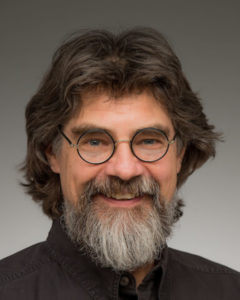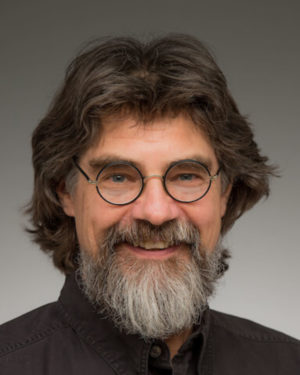Podcast: Play in new window | Download (Duration: 32:28 — 22.4MB) | Embed
Subscribe: Apple Podcasts | Spotify | Amazon Music | Android | Pandora | iHeartRadio | JioSaavn | Podchaser | Gaana | Podcast Index | Email | TuneIn | Deezer | Anghami | RSS | More

Episode 3 – Living Mystery in the Mundane – Pathway to Sacred Mysteries with Dr. David Fagerberg Ph.D.
Dr. David Fagerberg and Kris McGregor discuss the universal call to holiness as articulated by Vatican II, emphasizing that every Christian is a mystic, evangelist, and apostle in their own right. They explore the lay apostolate’s role in manifesting the mystery of Christ through daily life, even in seemingly mundane tasks. Dr. Fagerberg highlights the concept of “Consecrating the World,” which involves integrating liturgy, theology, asceticism, and mysticism into everyday experiences, suggesting that mundane activities are opportunities for liturgical acts and Eucharistic sacrifices.
The importance of seeing the divine in the ordinary, using examples like standing near the altar during Mass as Mary stood near the cross, and how daily interactions and struggles, can be acts of spiritual warfare and service. The Eucharist and the sacramental life nourish and capacitate Christians for this mission, drawing on the mystical participation in the Paschal mystery and the continuous cycle of receiving and giving in spiritual life.
Dr. Fagerberg also reflects on the deeper meaning of liturgy and its connection to salvation history, suggesting that liturgy is not just ceremonial but is deeply rooted in God’s cosmic plan for redemption and sanctification. He emphasizes that true spirituality has a disciplined, ascetic dimension, contrasting it with the often shapeless notion of spirituality in contemporary culture.
Here are some of the topics explored in this episode:
- What is a “mundane” liturgical theology?
- The call to holiness is here and now.
- How the Church serves a Mother.
- Why liturgy? Why worship? Why are we called?
From the discussion with Dr. Fagerberg:
“So where are you going to practice your asceticism, not sitting in your office, reading a book and thinking lofty thoughts about the human race, but when that colleague bugs me in this office meeting, when one more time I have to admit that Elizabeth is right, but I’m too stubborn to do so overcoming those passions of pride and vainglory and ego and avarice and gluttony and, and envy and backbiting… tiny little actions, day by day, movement by movement. St. John Chrysostom has a terrific homily on Ephesians which he says that the poor that you meet in the city, in the public square, the poor are another altar on which you can make your Eucharistic sacrifice. You’re so happy to have been in the church where there’s this stone altar that was, honored and revered because it bore upon it, the body and blood of Christ. Well, here is Christ in the person of the poor. Look, how generous God is to you. He’s given you a thousand chances a day to make another liturgical act, another Eucharistic sacrifice. And just when I think I’ve satisfied my quarter, he sends another one to me, what a good and generous God we have.”
More taken from the discussion:
“Chesterton was asked why he became a Catholic. And his answer was because we’re sinners. And because we have a God who loves us passionately. And so this is what God has done in order to rectify the problem. I think God always had intended to bring us home to him, to let us join the life of God, to enter the perichoresis of the Trinity. It’s not like that was plan A and then after the fall in the garden of Eden, he moved on to plan B redemption is a completion of creation. Creation was the beginning of redemption. So his goal is for our sanctification, our adoption, our deification, and God gets the ball rolling with the salvation history.”
David W. Fagerberg is Professor in the Department of Theology at the University of Notre Dame. He holds masters degrees from Luther Northwestern Seminary, St. John’s University (Collegeville), Yale Divinity School, and Yale University. His Ph.D. is from Yale University in liturgical theology.
Discerning Hearts Reflection Questions
- Universal Call to Holiness: How do you understand your role as a mystic, evangelist, and apostle in your daily life?
- Consecrating the Mundane: In what ways can you integrate liturgy, theology, asceticism, and mysticism into your everyday tasks?
- Manifesting Christ in Daily Life: How can you see Christ in the ordinary aspects of your life and in the people you encounter daily?
- Standing by the Cross: How do you assist at Mass and relate it to standing near the cross with Mary?
- Eucharistic Participation: How does your participation in the Eucharist nourish and capacitate you for spiritual warfare and service?
- Liturgical and Cosmic Connection: How do you perceive the connection between liturgical practices and God’s cosmic plan for redemption?
- Spiritual Discipline: How can you cultivate a disciplined, ascetic spirituality in your life?
- Sanctifying the Secular: In what specific ways can you sanctify the secular world through your actions and relationships?
- Living the Paschal Mystery: How do you live out the Paschal mystery in both your internal spiritual life and external actions?
- Recognizing Divine Nourishment: How do you recognize and respond to the ways Christ and the Church nourish you spiritually in your daily journey?
For more podcast episodes of this series visit the Pathways to Sacred Mysteries w/Dr. David Fagerberg page
David W. Fagerberg is Professor in the Department of Theology at the University of Notre Dame. He holds masters degrees from Luther Northwestern Seminary, St. John’s University (Collegeville), Yale Divinity School, and Yale University. His Ph.D. is from Yale University in liturgical theology.
Fagerberg’s work has explored how the Church’s lex credendi (law of belief) is founded upon the Church’s lex orandi (law of prayer). This was expressed in Theologia Prima (Hillenbrand Books, 2003). He has integrated into this the Eastern Orthodox understanding of asceticism by considering its role in preparing the liturgical person. This was treated in On Liturgical Asceticism (Catholic University Press, 2013). And these two themes come together in Consecrating the World: On Mundane Liturgical Theology (Angelico Press, 2016).
He also has an avocation in G. K. Chesterton, having published Chesterton is Everywhere (Emmaus Press, 2013) and The Size of Chesterton’s Catholicism (University of Notre Dame, 1998).






